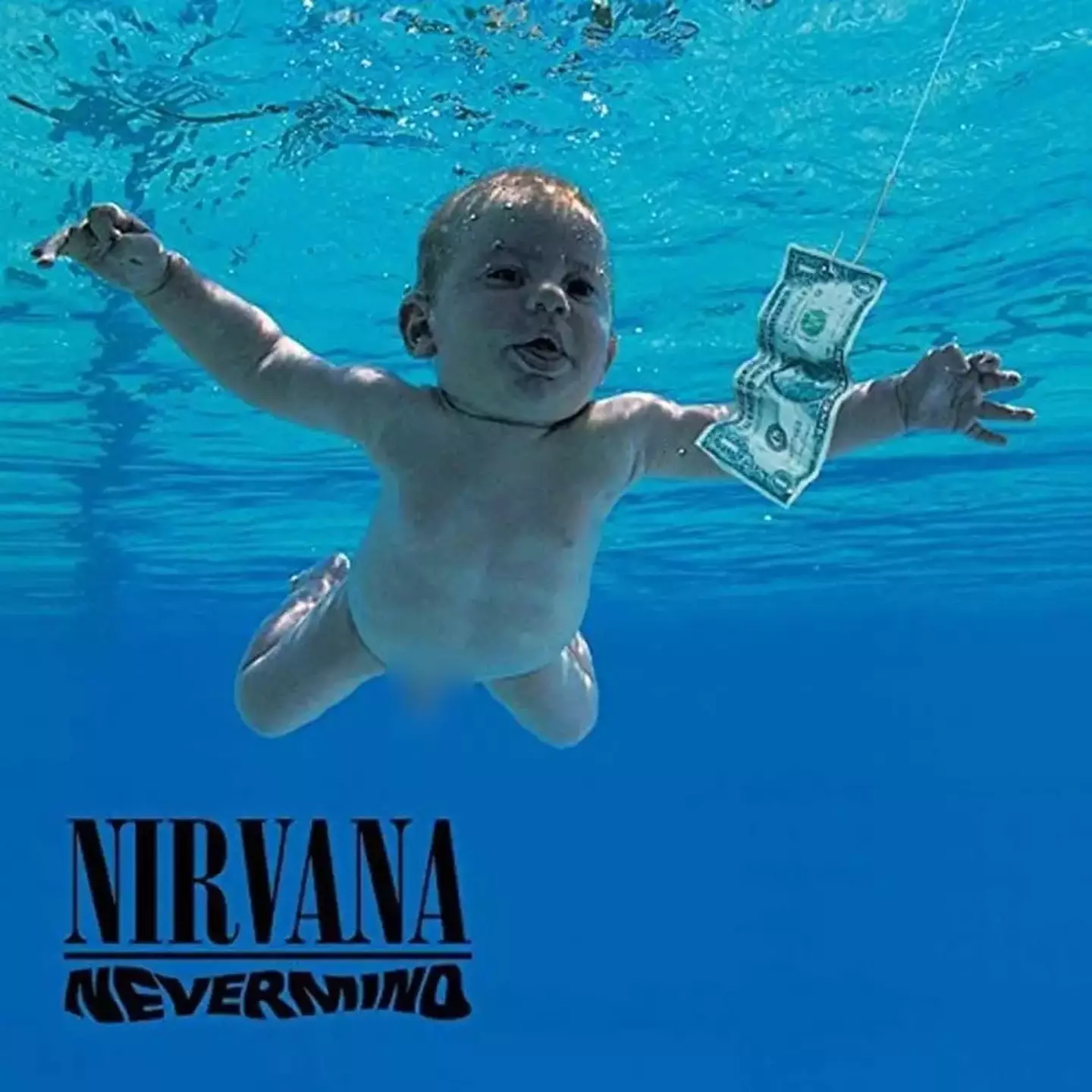Nirvana has successfully defended itself in court for the second time after a lawsuit alleging that the cover of their iconic album promoted child sexual abuse was dismissed.
Spencer Elden filed the case, claiming that the cover image of the band’s 1991 album “Nevermind” constituted sexual exploitation. US District Judge Fernando Olguin rejected this argument.
The album cover features Elden as a baby, swimming naked underwater towards a dollar bill on a fish hook. This image has become one of the most recognizable in rock history.
At 34, Elden contended that the photo continued to harm him and accused the band of distributing child sexual abuse material. He initially filed the lawsuit against Nirvana and Universal Music Group in 2021.
Judge Olguin ruled that the image did not meet the criteria for child pornography under federal law, stating that no reasonable jury would categorize it in such a manner.

The judge mentioned that beyond Elden’s nudity on the cover, nothing else would bring the image into the realm of child pornography laws.
Nirvana’s attorney, Bert Deixler, expressed satisfaction with the decision, stating, “We are delighted that the court has ended this meritless case and freed our creative clients of the stigma of false allegations.”
The case involved surviving members of Nirvana, Dave Grohl and Krist Novoselic, as well as Courtney Love, widow of Kurt Cobain, and photographer Kirk Weddle.
The initial lawsuit was dismissed in 2022 when the judge determined Elden’s claims were not filed within the legal time limit. However, the 9th Circuit Court of Appeals revived the case in 2023, allowing for a new hearing.

Judge Olguin has now definitively ruled that the lawsuit cannot continue, comparing the album cover to “a family photo of a nude child bathing” rather than anything pornographic.
The “Nevermind” album, which includes hits like “Smells Like Teen Spirit,” has sold over 30 million copies worldwide and was instrumental in catapulting Nirvana to global fame.
Elden, who has recreated the cover as an adult on multiple occasions, argued in his lawsuits that the image left long-lasting emotional damage and exploitation.

